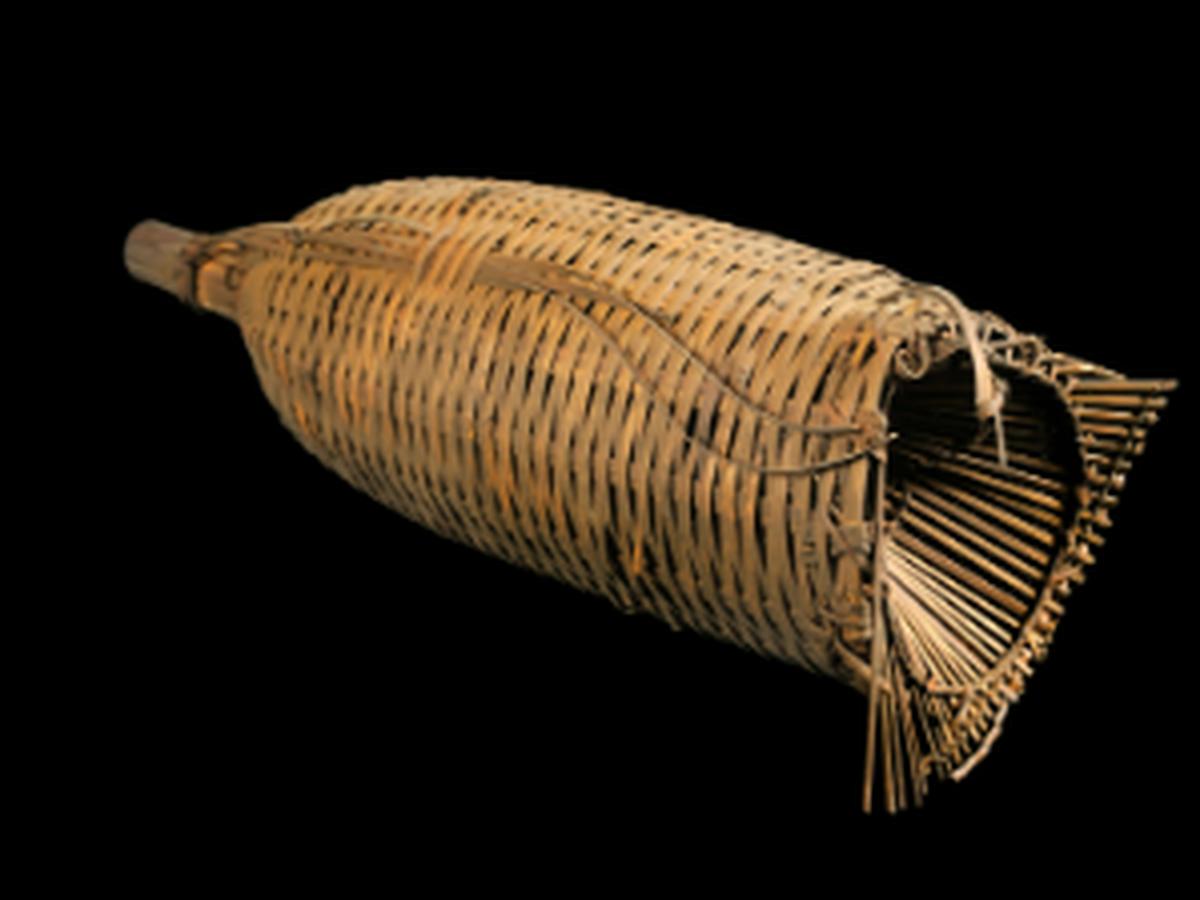State
Tribe Name
Art Type
short description
Kadar tribe, a supposed unique indigenous community in India, particularly in the Western Ghats of Kerala and Tamil Nadu, bears a connection with natural environmental systems. Their cylindrical-shaped fishing trap is among those used for generations as one of their traditional fish capture devices from freshwater streams and rivers. This trap demonstrates the knowledge of local materials and sustainable fishing practice of the tribe. Its conical end causes fish to end up in its interior, where they are thus trapped. The open end of this trap is fitted with a valve, which serves as a one-way mechanism for entering fish within its confines and prevents their exit. This makes the trap quite efficient in taking fish without continuous supervision.
Thumbnail

Filter Postion
Left
Filter Background
Off
Theme
Filter Header Image

content
Image

description
Kadar tribe, a supposed unique indigenous community in India, particularly in the Western Ghats of Kerala and Tamil Nadu, bears a connection with natural environmental systems. Their cylindrical-shaped fishing trap is among those used for generations as one of their traditional fish capture devices from freshwater streams and rivers. This trap demonstrates the knowledge of local materials and sustainable fishing practice of the tribe. Its conical end causes fish to end up in its interior, where they are thus trapped. The open end of this trap is fitted with a valve, which serves as a one-way mechanism for entering fish within its confines and prevents their exit. This makes the trap quite efficient in taking fish without continuous supervision.
The trap body is made of split bamboo, woven with a checker technique that enhances both its looks and strength. The checkerboard pattern adds to the trap's structural integrity but also aids in camouflaging it into its natural environment, rendering it less noticeable to fish. The Kadar tribe's use of this trap reflects very deep knowledge in the environment and excellent skill in crafting tools from readily available natural resources. To some point, the fishing trap is an excellent example of how indigenous communities have developed proper and sustainable relationships for harvesting Nature without exhaustively depleting the resource.
The trap body is made of split bamboo, woven with a checker technique that enhances both its looks and strength. The checkerboard pattern adds to the trap's structural integrity but also aids in camouflaging it into its natural environment, rendering it less noticeable to fish. The Kadar tribe's use of this trap reflects very deep knowledge in the environment and excellent skill in crafting tools from readily available natural resources. To some point, the fishing trap is an excellent example of how indigenous communities have developed proper and sustainable relationships for harvesting Nature without exhaustively depleting the resource.
Image Mode
landscape
promoted
On
Verified
Off
